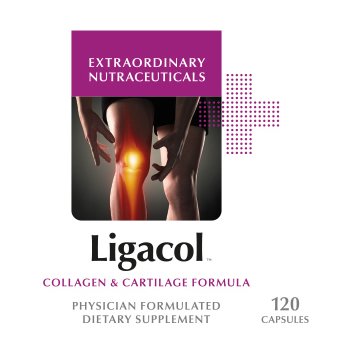All Categories





Ligacol Collagen & Cartilage Formula
Share Tweet
*Price and Stocks may change without prior notice
*Packaging of actual item may differ from photo shown
- Electrical items MAY be 110 volts.
- 7 Day Return Policy
- All products are genuine and original
- Cash On Delivery/Cash Upon Pickup Available








Ligacol Collagen & Cartilage Formula Features
-
Collagen & Cartilage Formula
About Ligacol Collagen & Cartilage Formula
Silicon is effective in increasing collagen production. This appears to be due to the fact that it is a constituent of the enzyme prolyl hydroxylase, which helps the body produce collagen and glycosaminoglycans, both important for connective tissue and joint health. Zinc's involvement in collagen synthesis appears to be through two different enzymes; procollagen N-proteinase and procollagen C-proteinase. These two enzymes are required tor processing the soluble precursor, procollagen, to collagen. Grape seed extract contains proanthocyanidins. These compounds have potent antioxidant properties and have high-affinity for collagen fibers in the body. Methionine, the sulfur-containing amino acid, is integral to the production of both collagen and keratin. Potassium. Recent research showed that the test subjects were given a potassium supplement experienced substantially faster healing of their wounds than the control groups. Granulation and epithelialization of the wounds took place sooner and with more activity, and wounds were filled with much more fibroblasts of all ages, as compared to the controls. Magnesium. A magnesium deficiency hinders the mechanism by which fibroblasts degrade defective collagen. Magnesium accelerates wound healing in laboratory studies, suggesting that it increases tissue strength by stimulating collagen formation. Copper is essential for collagen synthesis, and it appears to have its action via-a tri-peptide called glycyl-L-histidyl-L-lysine (GHK), which has an affinity tor copper in the Cu2+ form. Calcium has been shown to increase collagen type X synthesis. Manganese is essential in the production of collagen via its effect on glycosylation of hydroxylysine. Boron stimulates collagen synthesis and its excretion into the extracellular matrix of cartilage.




























